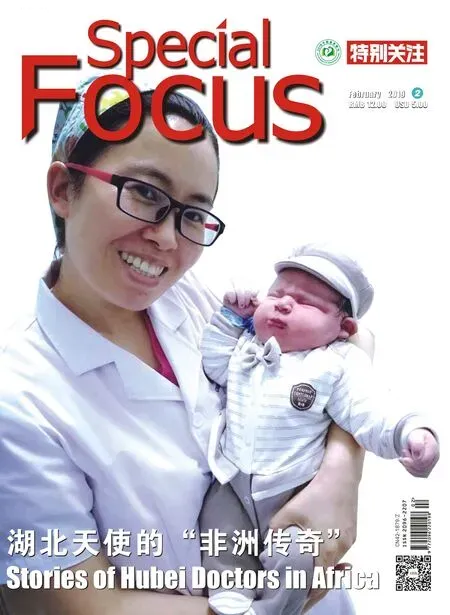Wording Matters
By Xu Chenguang
Words kill, and words heal. The right choice of words may smooth your communication and delight people around you.
1Several days ago, a friend of mine wanted to consult an expert for advice, so he asked his friend, who knew both of them, to arrange a dinner together. After reserving a restaurant, my friend sent out this message as a reminder: “It is our honor that you agreed to meet with us. The supper is arranged at room XX of XX Restaurant. Please arrive before six o’clock in the afternoon.”
However, not long after receiving the message, the expert replied, “I’m afraid that I can’t arrive on time because I have another important appointment. Let’s meet another day.”
My friend’s message told the exact place and the time and everything was clear, but the way he spoke to the expert did not hit the right marks—his message was forceful in tone. It is alright to speak to close friends or colleagues in an imperative way, but it is not appropriate to speak in that manner to an important guest. It may make one feel disrespected and unhappy.
So, the message could be rewritten as: “It is our honor that you agreed to meet with us. The supper is reserved at Room XX of XX Restaurant. We will be right there waiting for you at 6 pm.” In this way, it clearly tells the concrete place and time and shows the invitee enough respect.
2One of my colleagues was going to wed. He invited one of his superiors to participate in the wedding ceremony and arranged for him to get in the same car with his mother-in-law. Very soon, a police car appeared right after they left the bride’s home. Some colleagues murmured that it was unlucky. Shortly after, they happened to meet a bailiff’s car, and more gossip about the two ominous meetings spread, and his mother-in-law felt unhappy, her head hanging down.
Marriage is an important event in one’s life. Those who are married all want their ceremonies to be lucky and pleasant, so when many of the attendees kept on chattering, the superstitious parents of the bride and groom couldn’t be happy anyway.
At this moment, the superior stood up and said, “These special meetings speak good to the future of the marriage. Meeting the bailiff’s car means the marriage is legal and being protected by law; meeting a police car indicates that the bride and groom are distinguished ones. When they leave home for marriage, the police car guards them, which means one of their kids may have great futures.” His words made all participants delighted and the parents joyful.

(From Murmuring in the Twilight, Hunan Normal University Press. Translation: Joseph Ma)
生活語言有講究
文/徐晨光
案例一
前幾天,有位朋友想找位專家咨詢件事,就通過別人約好一起吃晚飯。這位朋友定好地方后,給專家發了這樣一條信息:感謝您同意和我們見面,晚餐訂在某某賓館、某某包間,請您下午六點之前趕到。對方接到信息后回復說:“我今天有重要事情,可能六點趕不到,以后再約吧。”
這個朋友的信息雖然講明了時間和地點,也能看明白,但是口氣不對,給對方提出了具體要求,這種口氣跟同事和朋友講話可以,但給重要的貴賓提具體要求,會讓人覺得不受尊重,心里不悅。
如果把這條信息改成“感謝您同意和我們見面,晚餐訂在某某賓館、某某包間,我們將于下午六點準時在那里恭候”,就既講明了時間、地點,又能讓人看懂,同時使人感覺到了尊重。
案例二
一個同事結婚,邀請了一位領導,把他安排和岳母坐同一輛車。車子剛出門,就碰到一輛公安的車,車上有人說這個不吉利。走了一段,又碰到一輛法院的車,議論的人就更多了。這個時候,岳母很不高興,把頭低了下去。
結婚是終身大事,誰都想圖個熱鬧和吉利,大家議論紛紛地說不吉利,老人又有一些迷信思想,當然就不高興了。
這時領導站了出來,打斷大家的話說:“這是好兆頭啊。出門碰到法院的車,說明婚姻有法律基礎,受法律保護;碰到公安的車,說明新郎、新娘是富貴之人,出門就有公安護航,說不定子孫中還會出一個貴人呢。”講到這里,大家都喜上眉梢,岳母也樂了起來。

